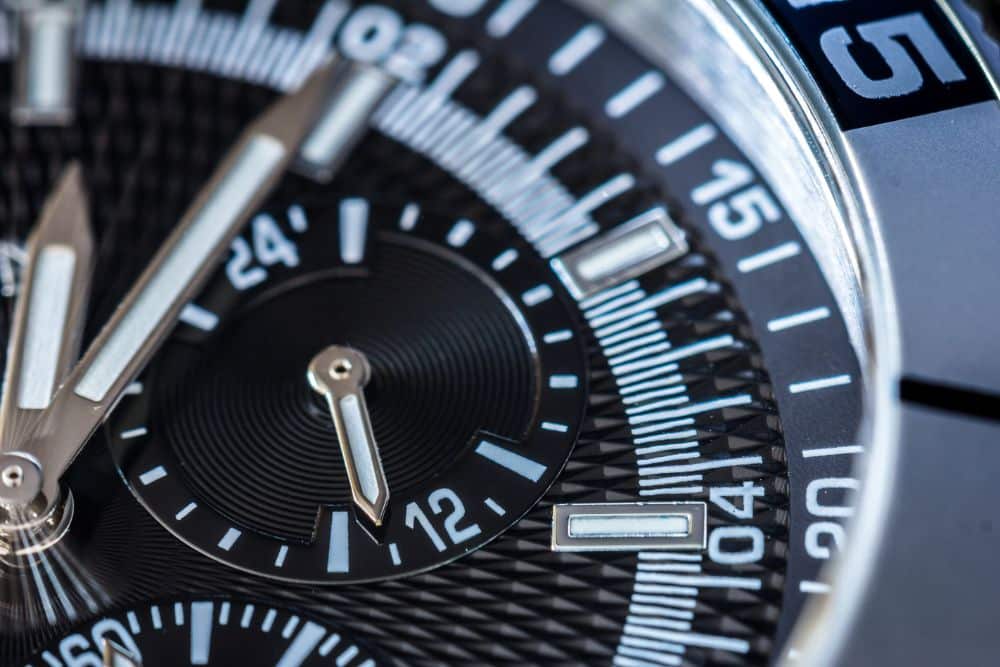The chronograph watch, an invention that dates back to the early 19th century, is a timepiece that combines the functions of a standard watch with those of a stopwatch. This guide aims to demystify the chronograph watch, providing you with practical insights on how to use it effectively.
Anatomy of a Chronograph Watch
- Main Dial: Like any watch, the main dial displays the current time.
- Sub-Dials: These smaller dials record elapsed time, typically in seconds, minutes, and hours.
- Pushers: Located on the side of the watch, these buttons control the stopwatch functions.
- Crown: The main control for setting the time and often used in conjunction with the pushers.
Starting with the Basics: Setting Time
Before delving into the stopwatch functionality, it’s important to know how to set the time on your chronograph watch. This typically involves:
- Pulling the crown out to its first or second position.
- Turning the crown to adjust the hands to the correct time.
- Pushing the crown back in to resume normal operation.
Using the Chronograph Function
Here’s where the real fun begins. To use the stopwatch:
- Start: Press the top pusher to start timing. The second hand on a sub-dial will start moving.
- Stop: Press the top pusher again to stop timing. Note the elapsed time on the sub-dials.
- Reset: Press the bottom pusher to reset the stopwatch hands to zero.
Understanding Sub-Dials
The arrangement and function of sub-dials can vary, but generally:
- The top sub-dial often measures elapsed minutes.
- The bottom sub-dial may measure elapsed hours.
- The left sub-dial typically shows running seconds of the current time.
Advanced Features
Some chronograph watches come with additional features like:
- Tachymeter: A scale used to calculate speed based on travel time.
- Telemeter: Measures the distance of an event based on the time it takes for sound to travel from that event to you.
- Pulsometer: Used to calculate heart rate.
Caring for Your Chronograph Watch
- Regular maintenance is crucial for accuracy and longevity.
- Avoid exposing your watch to extreme temperatures and magnetic fields.
- Cleaning should be done with a soft, dry cloth.
Tips and Tricks
- Use the chronograph function to time everyday activities, such as cooking or exercise.
- Practice using the pushers to get a feel for the stopwatch mechanism.
- Remember, using the chronograph function frequently can affect the watch’s timekeeping accuracy and power reserve.
Choosing the Right Chronograph Watch
When selecting a chronograph watch, consider:
- Style: From sporty to elegant, there’s a style for every occasion.
- Brand and Quality: Research brands for quality and reliability.
- Features: Decide what additional features are important to you.
The History and Evolution of the Chronograph Watch
- The first chronograph was invented in 1816 by Louis Moinet.
- Originally used for tracking astronomical objects, it has evolved into a popular fashion and sports accessory.
Conclusion
The chronograph watch is more than just a timepiece; it’s a tool, a fashion statement, and a piece of history on your wrist. With the knowledge of how to use and care for it, your chronograph watch can be a functional and stylish companion for years to come.
